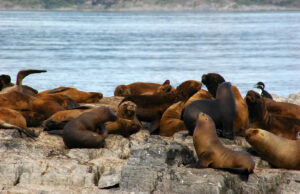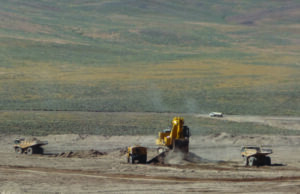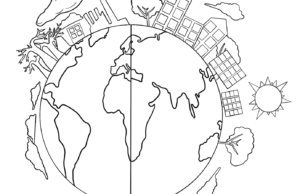Red meat leads to Earth’s defeat

America has always had a fascination with red meat. Whether it be at a Fourth of July barbecue or an upscale restaurant, Americans are some of the largest consumers of red meat in the world, with the average American eating about 50 pounds a year. I cannot even count the number of people who go to In-N-Out to sink their teeth into a double-double cheeseburger.
Not surprisingly, U.S. beef consumption is four times higher than the world average, and this diet is not planning to change anytime soon. However, eating red meat has severe consequences for the planet and is a major contributor to climate change. Eating less red meat is essential to curbing this issue.
There is a strong link between red meat production and greenhouse gases, which trap heat in the Earth’s atmosphere. According to World Resources Institute, beef production emits 20 times more greenhouse gas releases per gram of protein than common plant products. These emissions are in the form of methane, from manure and “cow burps,” and nitrous oxide, from chemical fertilizers and cow waste on pastures. To put it into perspective, the suggested fertilizer application on a ranch is about 115 pounds per acre. That’s more than the weight of an adult giant octopus. Per acre.
Red meat is extremely resource-intensive to produce. Cows require ample land and water and have lower reproduction rates than poultry, meaning that more resources are needed to produce the same amount of meat. To satisfy the growing population and a high demand for red meat in developing countries, more land needs to be converted into farmland for livestock. This results in deforestation, which emits carbon dioxide into the air. In this way, red meat and its effect on the planet is cyclical.
So, what can people do to limit their impact on the planet? The best answer is to stop or cut down on red meat consumption. Many believe that vegetarian and vegan options are expensive and boring, but this could not be farther from the truth. Foods such as beans and pasta are extremely cheap and can be made into a variety of delicious meals. Additionally, in Newbury Park, our own proximity to Los Angeles gives us a wide variety of vegetarian and vegan restaurants to choose from. For meat lovers, switching over to organically sourced white meat is another great option.
As a society, we need to take steps to prevent climate change from worsening. While buying metal straws is great, we need to take initiative and do the bigger things as well. Changing a diet or lifestyle may seem difficult, but we cannot sacrifice the greater good of the planet.



